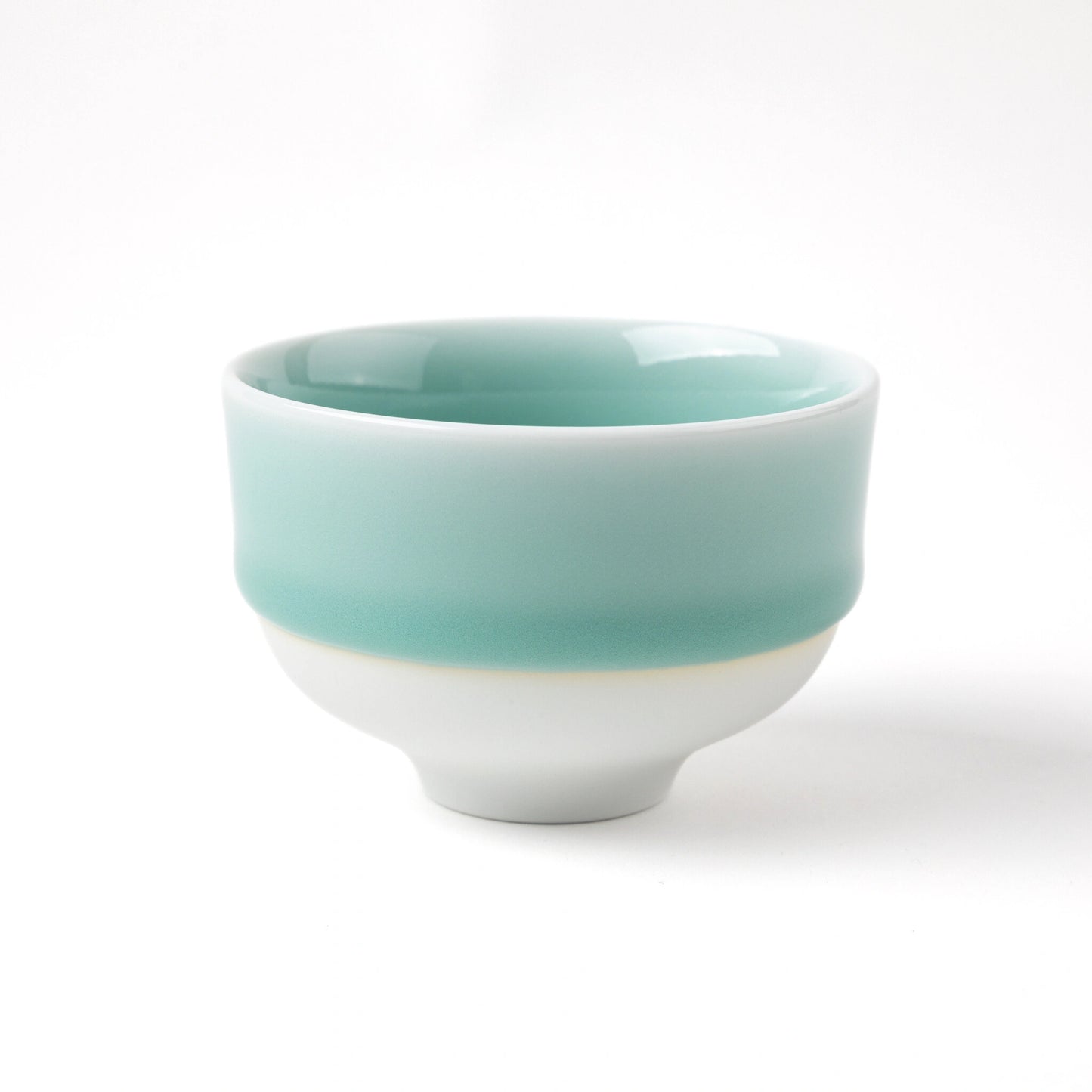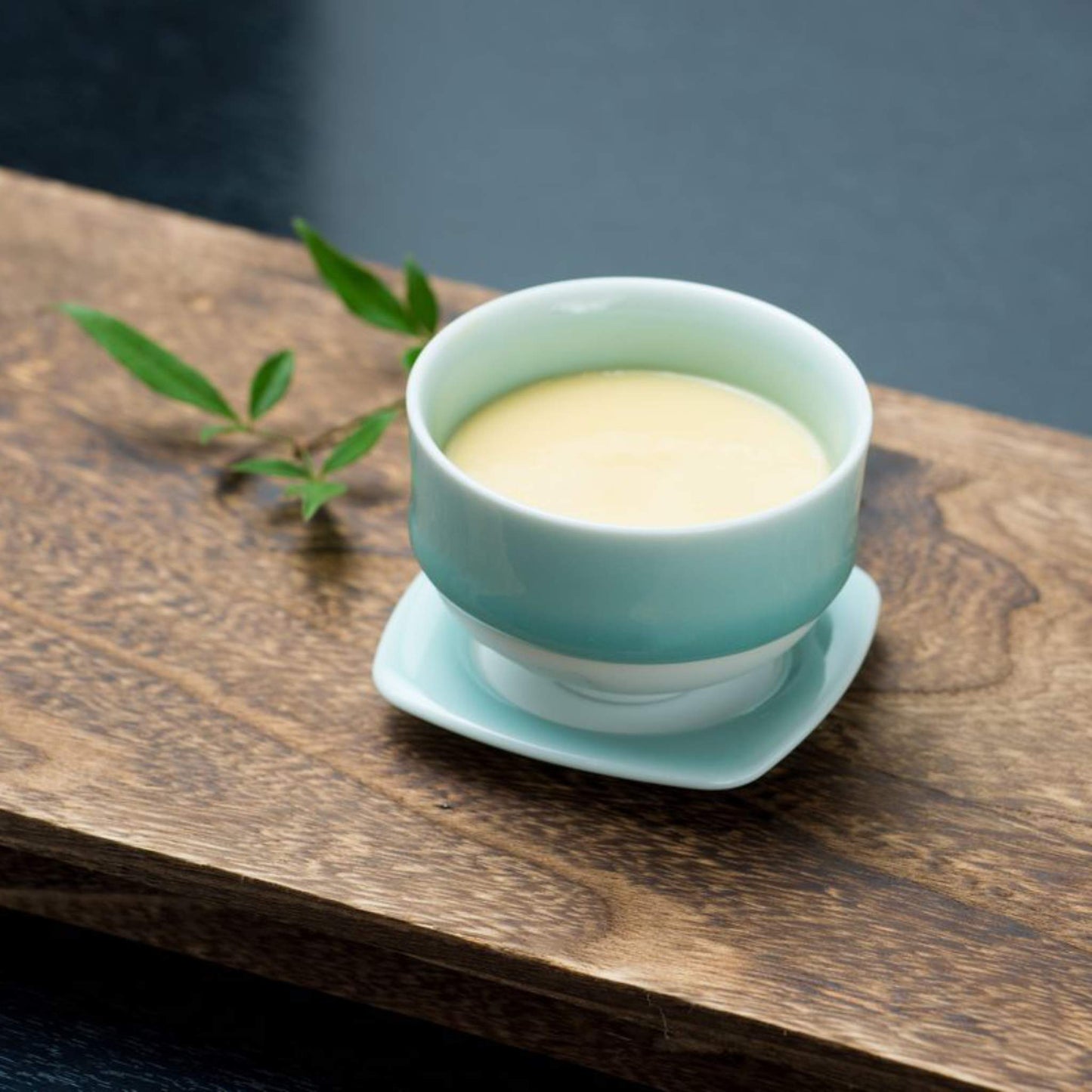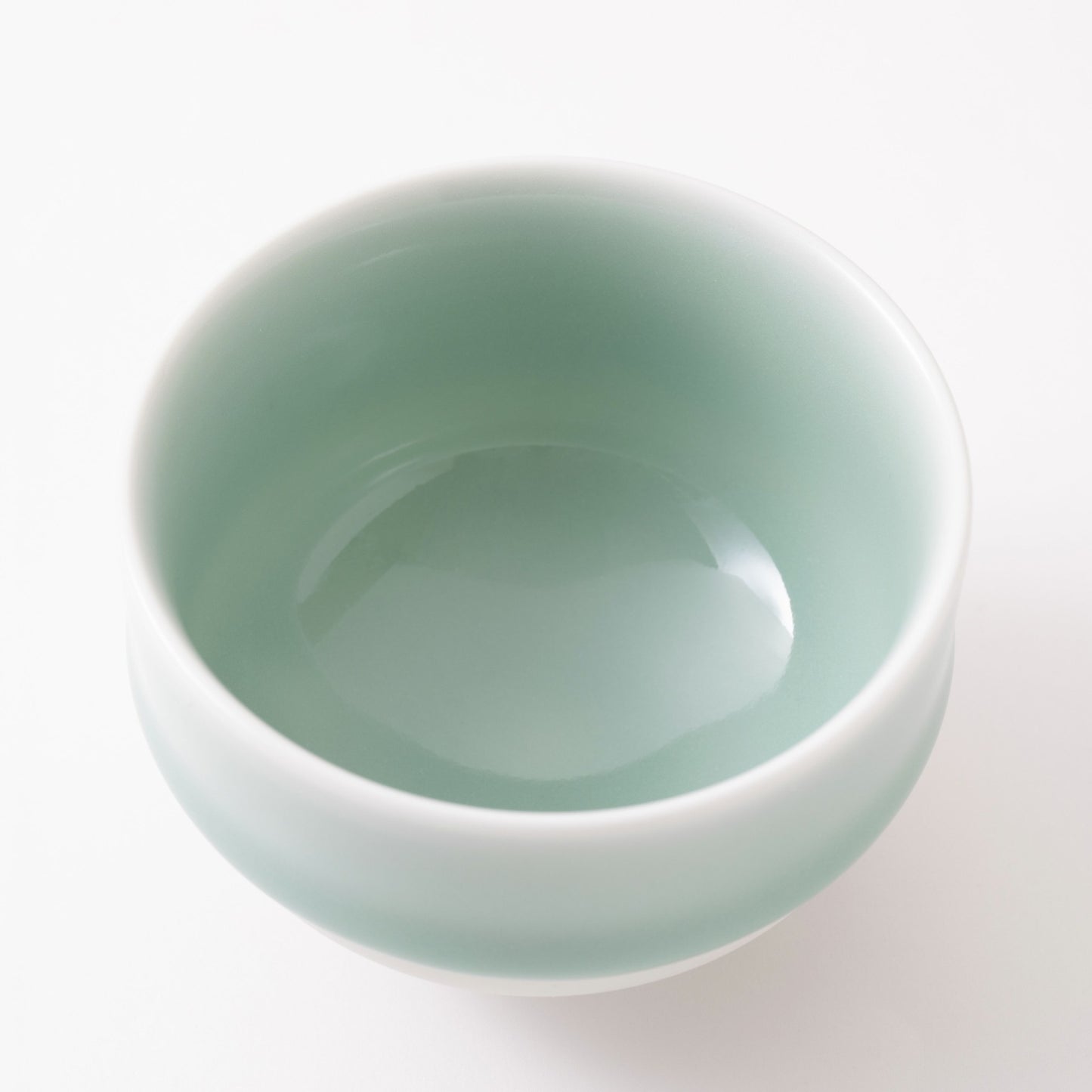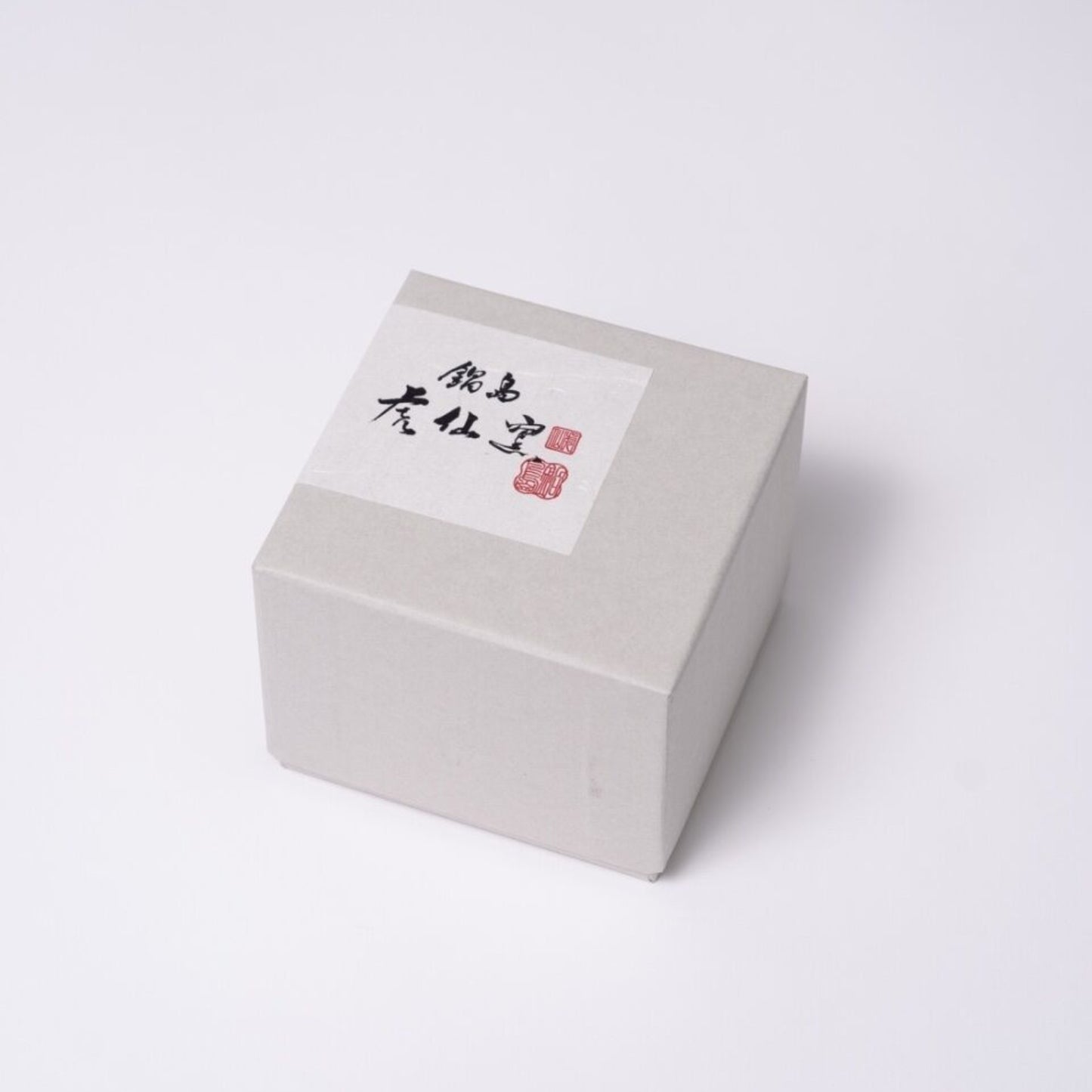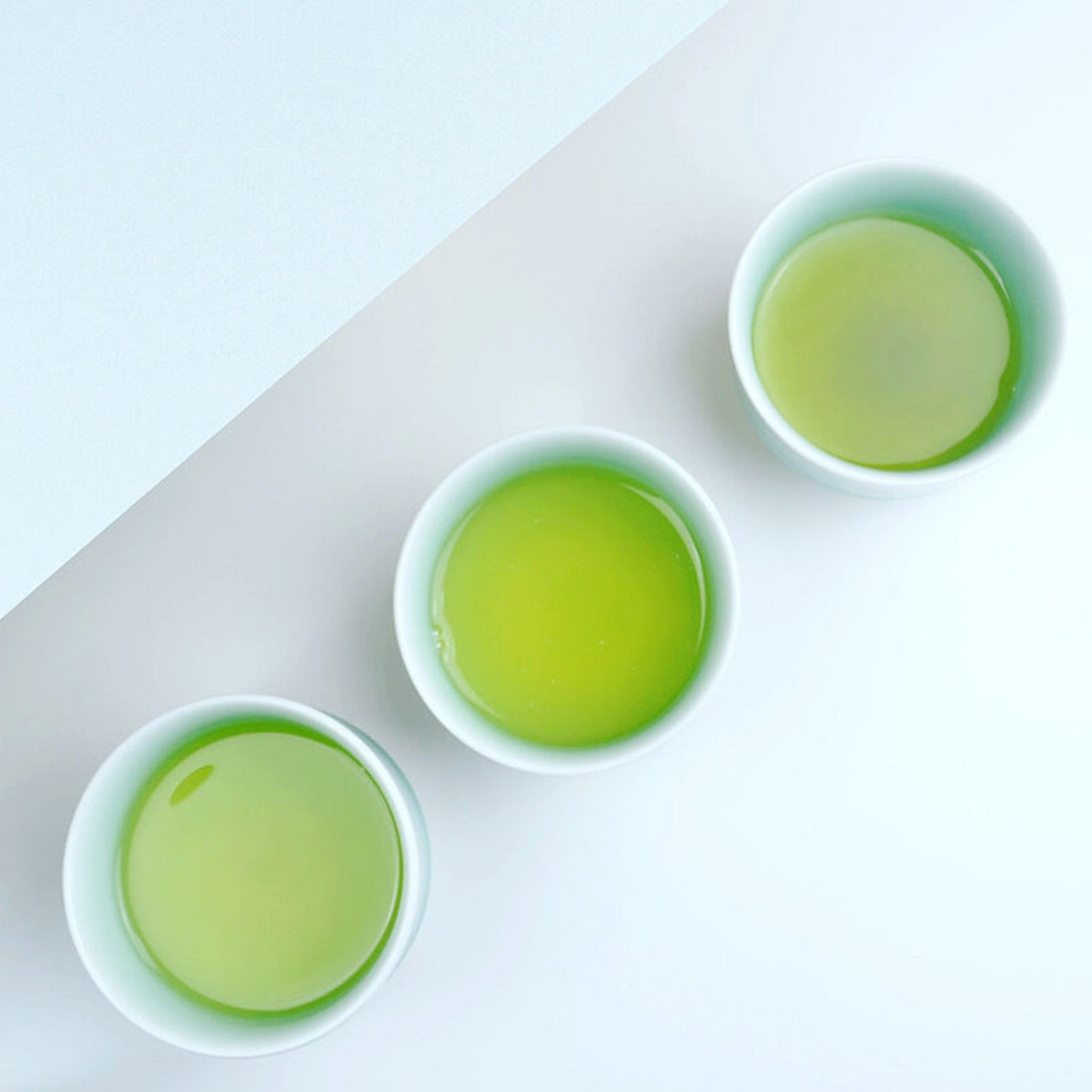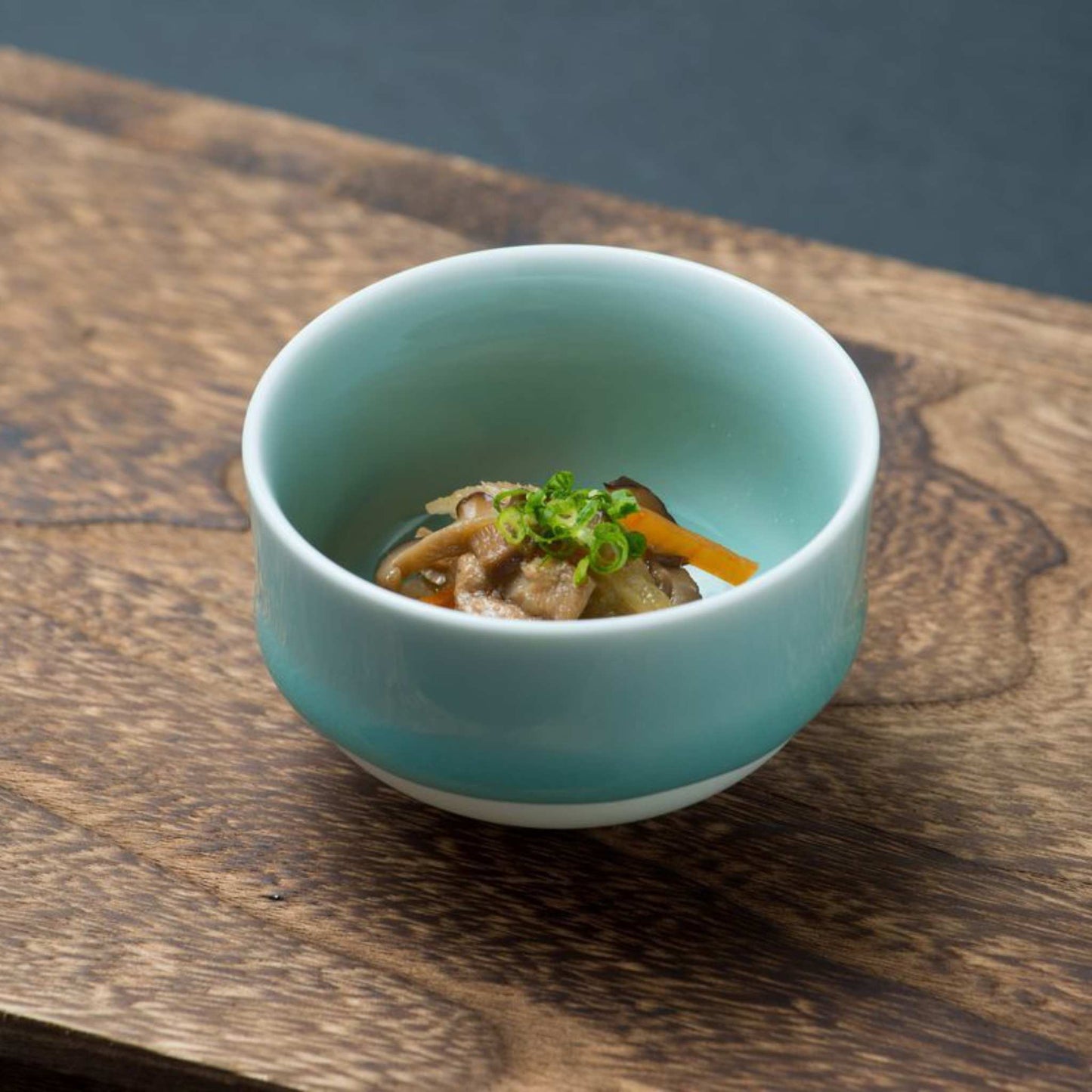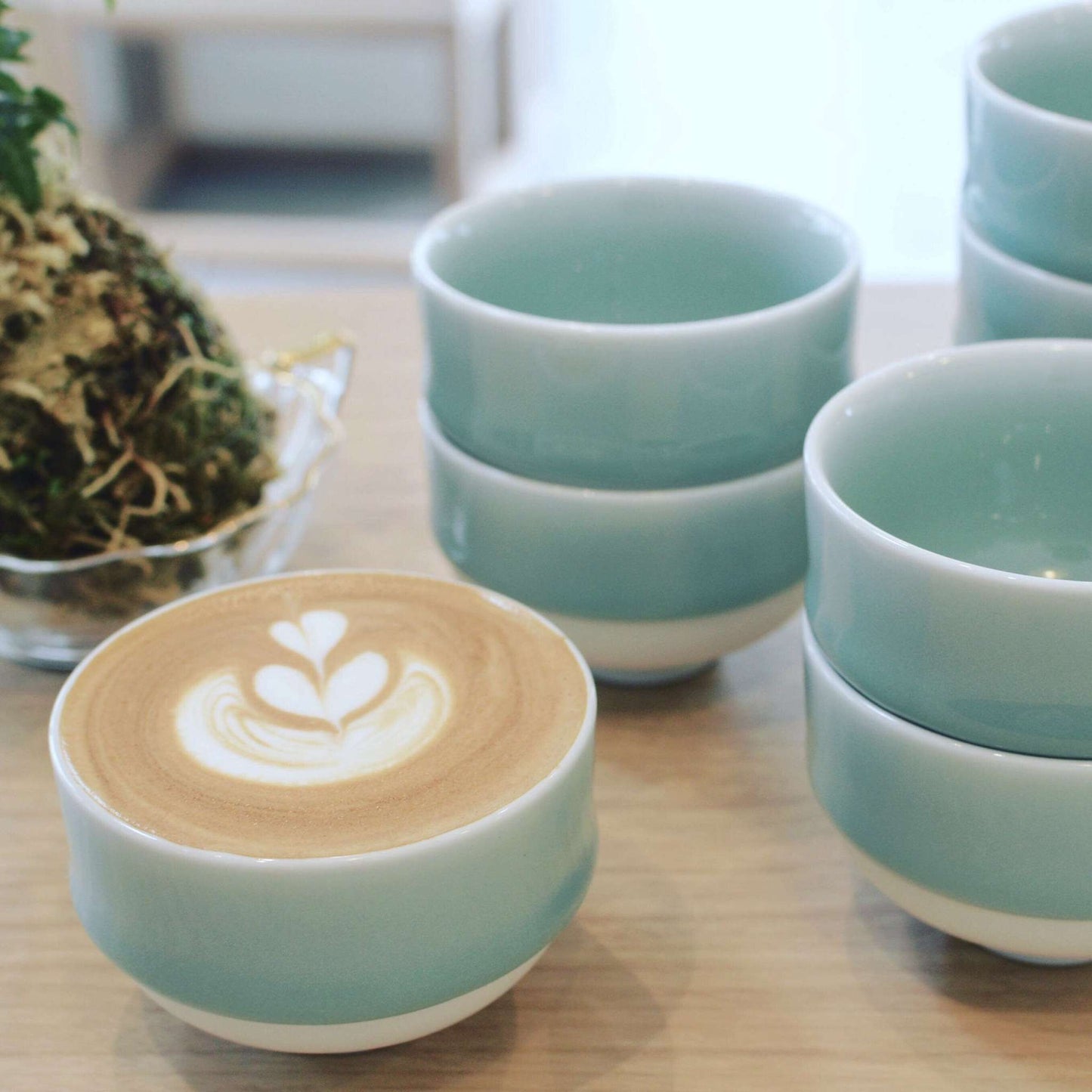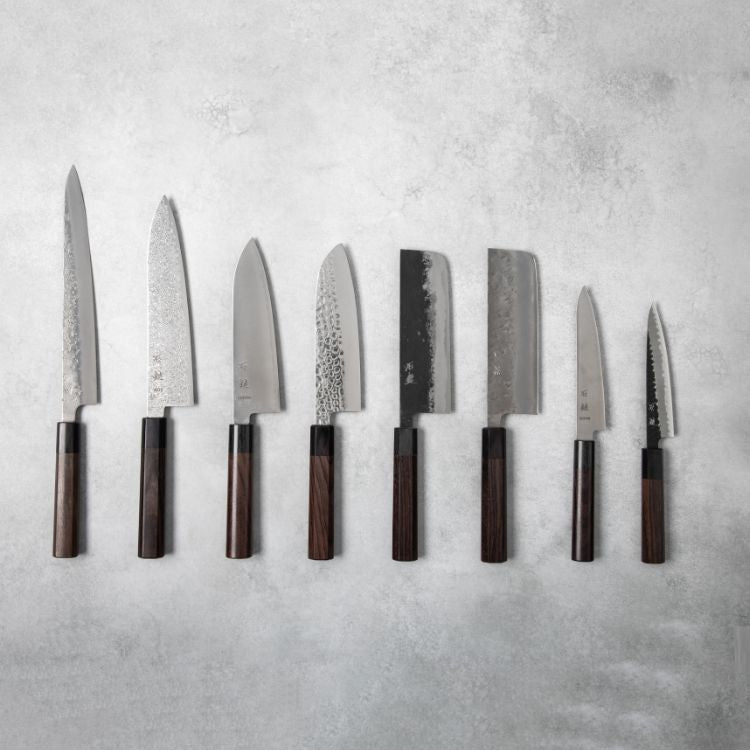Nabeshima Celadon Porcelain Sencha Teacup
Nabeshima Celadon Porcelain Sencha Teacup
Only 3 left in stock
Couldn't load pickup availability
The Nabeshima Celadon Porcelain Sencha Teacup by the artisans of Nabeshima Kosen Kiln is crafted from natural ores mined from Mount Okawachi, this teacup embodies the legacy of Nabeshima celadon, a tradition passed down for over 360 years. The cup's captivating design features a natural blue-green luster, a hallmark of Nabeshima celadon, lending an air of mysterious beauty and elegant character.
The cup's comfortable size and smooth porcelain surface are perfect for cradling in your hands as you savor your favorite beverage. Microwave and dishwasher safe, this teacup seamlessly integrates into your daily life. Whether you are a seasoned tea connoisseur or simply appreciate the finer things in life, this cup is sure to become a cherished part of your teaware collection.
Detail
Detail
Care & Use
Care & Use
- Check our tips for care & use.
